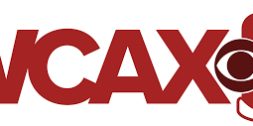Electric transit buses find a home in Vermont
Click here to read the full original story.
RUTLAND, Vt. (WCAX) – You might be able to spot an electric transit bus, but you won’t be able to hear it. In Rutland, a grant-funded pilot program found these e-buses are viable for use in Vermont and easier to manage than e-school buses.
State leaders say there are currently 30 electric transit buses in service across Vermont. Two of those are in Rutland, where officials say they’ll keep them around for the foreseeable future.
“The buses themselves were great. We’ve used them for about a year and a half now. Maintenance is minimal. The charging part has still been here and there, they go down for unknown reasons,” said Ken Putnam of the Marble Valley Regional Transit District.
Charging is the main issue– they frequently operate with just one charger functional. But Putnam says the buses typically only need a full charge to complete their route.
“The buses themselves work in cold weather when they run the route. The routes that they’re running on go the entire day on one charge,” said Putnam.
MVRT provides busing for 27 towns and Rutland City, and Putnam says they each travel around 150 miles per day. He says they are looking to add more e-buses to their fleet, especially after a statewide report showed one e-bus saved more than $8,000 in fuel costs, and another saved almost $15,000.
State environmental leaders say the pros outweigh the cons.
“One had an in-service rate of 89%, and the other one wasn’t quite as well at 59%. But largely they were able to build the routes, provide service to passengers,” said Leigh Martin with the Department of Environmental Conservation.
Martin says they’re working to bring 17 more electric transit buses to the state over the next few years, noting the shorter, condensed routed cities work best.
“We’re looking to primarily be in the Burlington and surrounding areas. They were able to make the trip out to Killington and they were able to fulfill the Middlebury connector route,” Martin said.
The Rutland Board of Aldermen recently passed a “green fleet” policy measure. Mayor Mike Doenges said that with the unprecedented levels of funding available to add chargers and other infrastructure, he expects to see an increase in e-vehicles.
“Our department of public works, our rec department — anybody who’s going to buy vehicles — our police department — we say, ‘Hey, before you buy a vehicle, look and see if there’s a good fit for an electric vehicle in that replacement path,’” said Doenges.
Those extra 17 buses coming to the state are being funded by the same Volkswagen settlement that funded Rutland’s buses.
